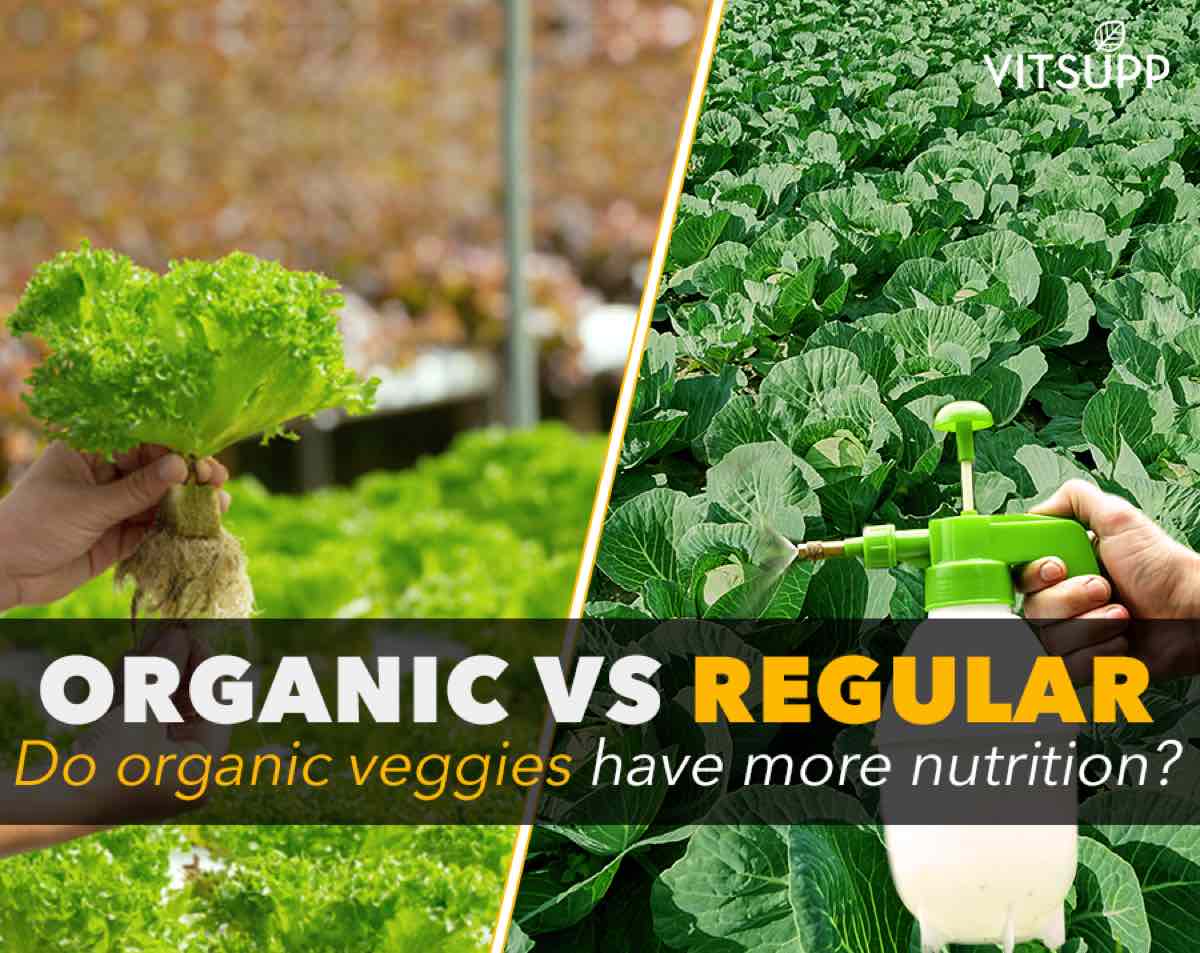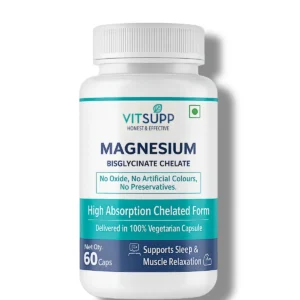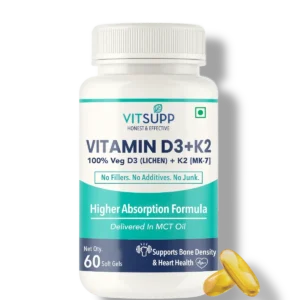You must have noticed that every supermarket now has an organic products section. The vegetables may not look special, but they are often priced higher than what you get from the market. If you are confused which ones to buy, and ultimately- if organic vegetables are worth the price(and hype), we have the answers for you. Read on to know more about organic vs inorganic vegetables.
Unless you have been living under a rock, you must have come across reports, articles and talks which talk about the goodness of organic fruits and vegetables. Many celebrities and wellness experts too, offer testimonials on how much better their life has been since they started taking organic foods. The question remains- is eating organic really good for you or is it just another wellness fad?
In short, the answer is- yes. Buying organic fruits and vegetables is definitely worth the price. But we need to look at the matter in depth.
Contents
Organic vs Inorganic vegetables
In order to understand why organic versions are considered better than their conventionally grown counterparts, we have to understand what is the difference in the method of cultivation of both.
The problem with conventionally grown vegetables is that they often come loaded with harmful chemicals. Since conventional food is cultivated with large amounts of pesticides and chemical fertilizers, they often absorb these harmful chemicals, which are then consumed by us.
No matter how well you wash the vegetables, you cannot wash away pesticide residues from them.
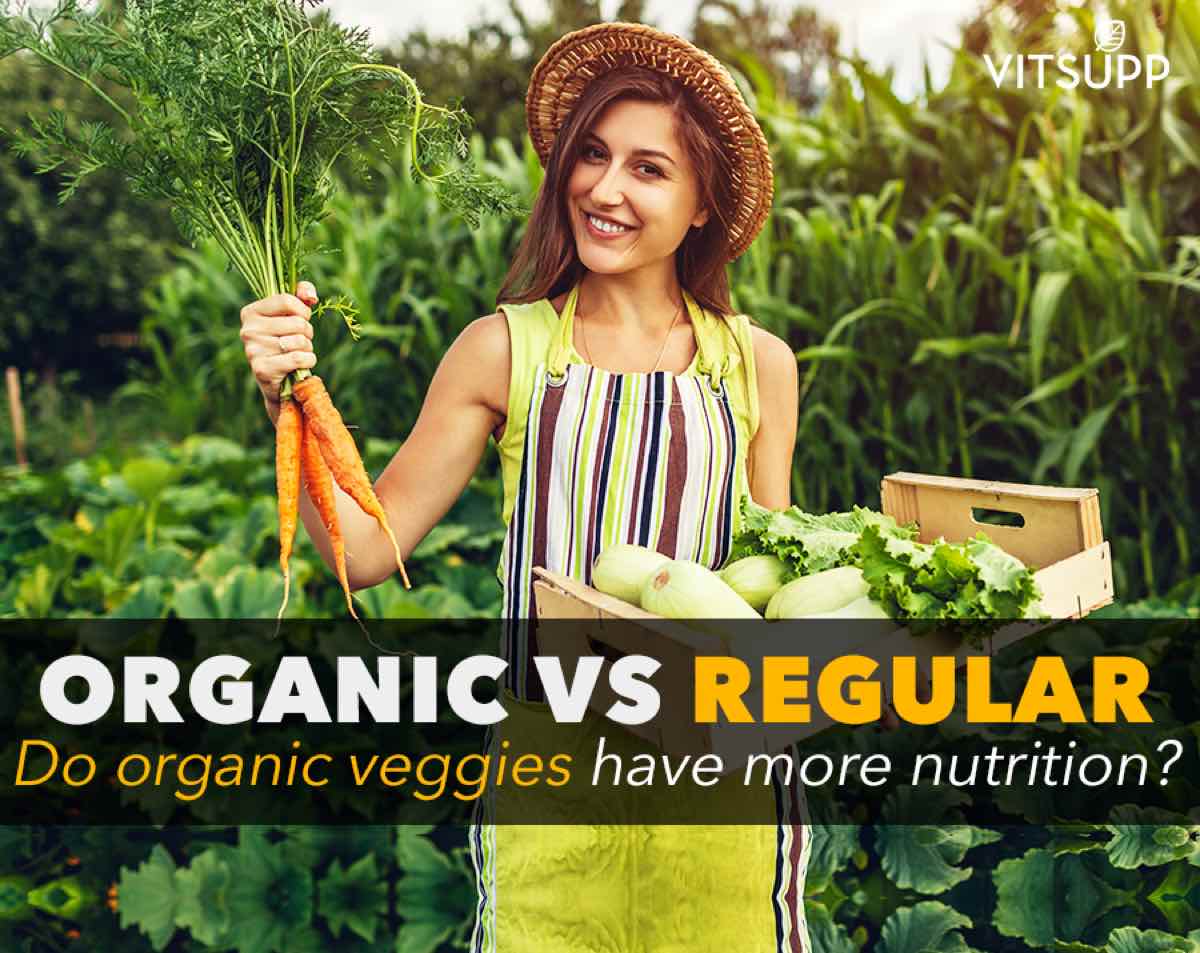
How are organic vegetables grown?
Fruits and vegetables that are cultivated in a way that meets certain criteria are termed “organic”. As per the United States Department of Agriculture, “Produce can be called organic if it’s certified to have grown on soil that had no prohibited substances applied for three years prior to harvest. Prohibited substances include most synthetic fertilizers and pesticides. In instances when a grower has to use a synthetic substance to achieve a specific purpose, the substance must first be approved according to criteria that examine its effects on human health and the environment.” (source)
The USDA determines what vegetables are considered “organic” and “non-organic” and labels them accordingly. The US Food and Drugs Administration (FDA) considers food items to be “organic” if food items meet the USDA standards as well as the FDA norms of food safety. (source)
In India, the Food Safety and Standards Authority India (FSSAI) issues the “Jaivik Bharat” certification for all organic fruits, vegetables and food products. As the Jaivik Bharat regulations define it, “Organic foods are products of holistic agricultural practices focusing on biodiversity, soil health, chemical-free inputs etc. with an environmentally and socially responsible approach that have been produced in accordance with organic production standards.” (source)
How to identify organic vegetables
Of course, for the layman, it is difficult to say which vegetable is organic and which is not. Usually, we just trust the label. So look for “organic” food labels issued by relevant government authorities.
This is because companies may often mislabel their products to dupe their buyers into spending more. But if you buy food without the proper government certification, you may end up getting cheated. More than the money, you will be losing on health.
Do organic fruits and vegetables have pesticides?
In one word- no. In organic farming, the usage of pesticides is restricted. Studies find that the biggest cause of human exposure to pesticide residue is via consumption of conventionally grown produce. In fact, many studies have found that inorganic vegetables are routinely testing positive for pesticide contamination – all over the world. (source) (source)(source)
These chemicals are harmful, may lead to severe complications and may even lead to hormonal imbalances, tumour growth and cancer. Scientists say that the exposure to these pesticides, heavy metals and other harmful agents via consumption of fruits and vegetables pose a major threat to public health. (source)
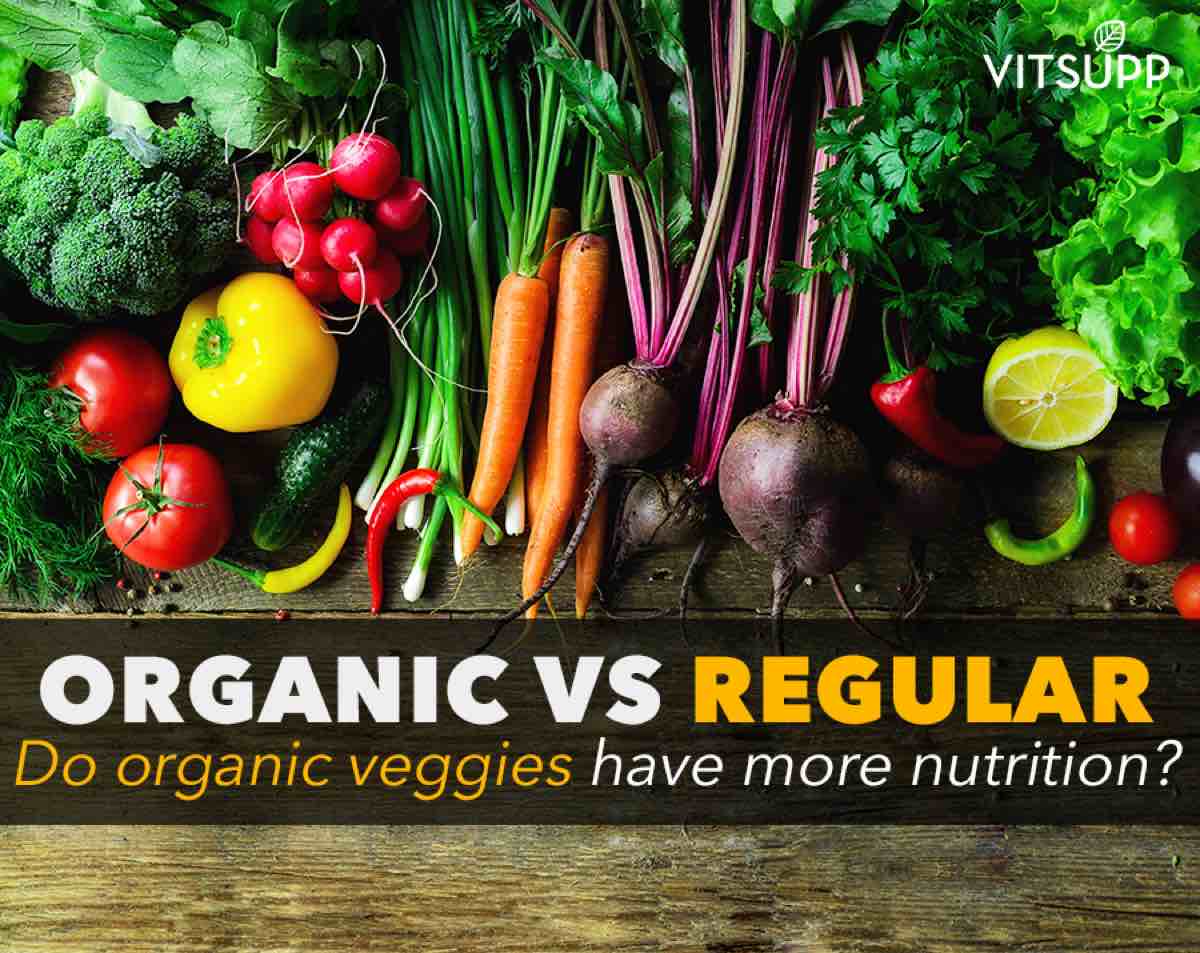
Difference between organic and non-organic vegetables
Generally speaking, organic vegetables are always much more nutritious compared to conventional produce.
An international team of experts led by Newcastle University has shown that organic crops are up to 60% higher in a number of key antioxidants than conventionally-grown ones.
The study, published in the prestigious British Journal of Nutrition, also shows significantly lower levels of toxic heavy metals in organic crops. Cadmium was found to be almost 50% lower in organic crops than conventionally-grown ones.
Newcastle University’s Professor Carlo Leifert, who led the study, said:
“This study demonstrates that choosing food produced according to organic standards can lead to increased intake of nutritionally desirable antioxidants and reduced exposure to toxic heavy metals.
“The organic vs non-organic debate has rumbled on for decades now but the evidence from this study is overwhelming – that organic food is high in antioxidants and lower in toxic metals and pesticides.
“But this study should just be a starting point. We have shown without doubt there are composition differences between organic and conventional crops, now there is an urgent need to carry out well-controlled human dietary intervention and cohort studies specifically designed to identify and quantify the health impacts of switching to organic food.” (source)
According to another 2013 study published in the journal PLOS ONE (2013), organically grown tomatoes have significantly elevated nutrient content compared to tomatoes grown conventionally, using agricultural chemicals. The organic tomatoes were found to contain 55% more vitamin C and 139% more total phenolic content at the stage of maturity compared to conventionally grown tomatoes. (source)
Organic vs Non-organic fruits and vegetables
A 2007 Quality Low Input Food Project by the University of Hohenheim, Germany, into organic food revealed the best benefits of consuming organic. The researchers grew fruit and vegetables, and raised cattle, on adjacent organic and non-organic sites, and discovered that:
- Organic fruit and vegetables contained up to 40 per cent more antioxidants.
- Organic produce had higher levels of beneficial minerals like iron and zinc.
- Milk from organic herds contained up to 90 per cent more antioxidants
The results were so significant that they concluded that, “Eating organic foods can even help to increase the nutrient intake of people who don’t eat the recommended five servings of fruits and vegetables a day.” (source)
That should settle the organic vs non-organic debate for most people!
Hydroponic vegetables vs organic Vegetables
A new type of cultivation is now taking the world by storm- hydroponic farming. In this method, plants are grown without soil. The necessary nutrients are supplied by water to the roots and the produce is grown in water solutions.
Vegetables like cucumbers, tomatoes, lettuce and peppers are now being grown via hydroponics in many places. While hydroponics may involve totally organic nutrients, it may also use chemicals for providing nutrition to the plants.
Hydroponic vegetables may not be organic, but they are considered sustainable because they reduce water use and wastage significantly. (source)
There is controversy whether hydronic cultivation can be considered organic. Organic farming implies the use of no chemical ingredients. However, the USDA declared that hydroponic vegetables can be certified organic if they meet certain criteria. This has remained a bone of contention between organic farmers and federal authorities. (source)
Are non-organic vegetables safe?
The freshness of vegetables is a more important criterion than organic or non-organic. First choose fresh, then among the fresh choose organic. Stale or wilted organic vegetables are worse than fresh conventional produce.
So if you get the chance to pick up fresh, non-organic vegetables, go for it!
Non-organic vegetables to avoid
The Environmental Working Group (EWG) produces a list every year listing the “dirty dozen” vegetables and fruits that you should avoid. The list is prepared on the basis of the information available from the annual reports of the USDA’s Pesticide Data Program.
This list talks about products which are considered safe by the federal authorities but are considered unsafe by EWG. However, even the EWG experts believe that eating vegetables- even conventionally grown ones- have benefits that far outweigh the risks of consuming pesticide residues.
Here is the “Dirty Dozen” list for 2019 (source):
- Strawberries
- Spinach
- Kale
- Nectarines
- Apples
- Grapes
- Peaches
- Cherries
- Pears
- Tomatoes
- Celery
- Potatoes
The EWG also warns that some sweet corn, papaya and summer squash available in the US markets is produced with genetically modified (GM) seeds. You may want to look at local farmers’ markets and organic sections for these products instead.
In Conclusion
Remember one thing- fruits and vegetables are essential parts of our diet. So don’t be paranoid if you cannot find certified organic produce nearby. Studies show that eating vegetables- organic or not- has many benefits. If you stop eating them in fear of ingesting trace amounts of pesticides, you may be doing yourself even more harm.
So go ahead and make vegetables the star of your meals. You now know that you must choose fresh and organic vegetables for the most impact. And finally relief for the mothers who will finally be able to choose the most nutrient-dense veggies (even if the portion is small) for the kids who turn up their noses at the “green” on the plate.
References:
- Di Noia J. Defining Powerhouse Fruits and Vegetables: A Nutrient Density Approach. Prev Chronic Dis 2014;11:130390.
- 2007 Quality Low Input Food Project
- Higher antioxidant and lower cadmium concentrations and lower incidence of pesticide residues in organically grown crops: a systematic literature review and meta-analyses. Sep 2014
- The influence of organic and conventional cultivation systems on the nutritional value and content of bioactive compounds in selected tomato types. Nov 2012
- The Impact of Organic Farming on Quality of Tomatoes 2013

